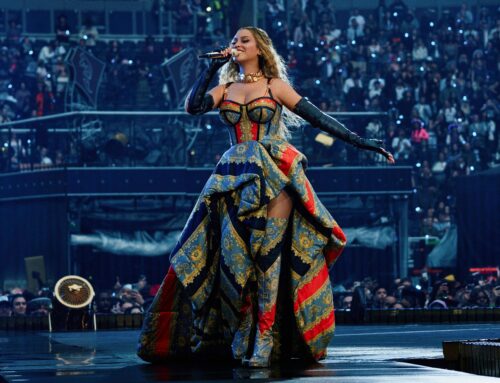Actress Natasha Lyonne Makes Her Directorial Debut with a Sci-Fi Film Featuring AI-Generated Visuals
Known for cult series like Russian Doll and Poker Face, actress and screenwriter Natasha Lyonne makes her feature directorial debut with Uncanny Valley, a project that blends science fiction storytelling with technological experimentation. The film will be produced by Asteria — the studio Lyonne co-founded — and will combine traditional filmmaking techniques with AI-generated visuals, developed in collaboration with Moonvalley.
Co-written by Lyonne and Brit Marling (The OA, A Murder at the End of the World), the film stars both creators. Uncanny Valley is set in an alternate present and follows Mila, a teenager immersed in an augmented reality video game that begins to malfunction, causing dangerous spillovers into real life. The game sequences will be developed in collaboration with virtual reality pioneer Jaron Lanier, using Marey, an AI model described by Asteria as “ethical and clean” because it was trained exclusively on licensed content.
According to Lyonne, “these new technologies, when used creatively and ethically, offer extraordinary opportunities.” For Marling, Uncanny Valley is also a way to imagine a new use of AI in support of creative storytelling: “Science fiction can be a powerful tool of resistance — allowing us to imagine what could be, rather than what is.”
The film aims to explore the intersection of creativity and innovation at a time when Hollywood is deeply divided over the use of artificial intelligence. Lyonne herself has recently spoken out in defense of copyright, signing a letter alongside fellow artists urging the U.S. government to limit the unauthorized use of copyrighted material in training AI models.
Produced by Asteria and Lyonne’s Animal Pictures, Uncanny Valley does not yet have an official release date, but is already shaping up to be one of the most original projects in the evolving landscape of tech-driven cinema.
Source: Variety
Share:
Known for cult series like Russian Doll and Poker Face, actress and screenwriter Natasha Lyonne makes her feature directorial debut with Uncanny Valley, a project that blends science fiction storytelling with technological experimentation. The film will be produced by Asteria — the studio Lyonne co-founded — and will combine traditional filmmaking techniques with AI-generated visuals, developed in collaboration with Moonvalley.
Co-written by Lyonne and Brit Marling (The OA, A Murder at the End of the World), the film stars both creators. Uncanny Valley is set in an alternate present and follows Mila, a teenager immersed in an augmented reality video game that begins to malfunction, causing dangerous spillovers into real life. The game sequences will be developed in collaboration with virtual reality pioneer Jaron Lanier, using Marey, an AI model described by Asteria as “ethical and clean” because it was trained exclusively on licensed content.
According to Lyonne, “these new technologies, when used creatively and ethically, offer extraordinary opportunities.” For Marling, Uncanny Valley is also a way to imagine a new use of AI in support of creative storytelling: “Science fiction can be a powerful tool of resistance — allowing us to imagine what could be, rather than what is.”
The film aims to explore the intersection of creativity and innovation at a time when Hollywood is deeply divided over the use of artificial intelligence. Lyonne herself has recently spoken out in defense of copyright, signing a letter alongside fellow artists urging the U.S. government to limit the unauthorized use of copyrighted material in training AI models.
Produced by Asteria and Lyonne’s Animal Pictures, Uncanny Valley does not yet have an official release date, but is already shaping up to be one of the most original projects in the evolving landscape of tech-driven cinema.
Source: Variety









